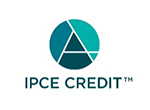2025 Annual Meeting: CME Credit InformationStatement of NeedThe core educational gaps in cardiovascular medicine include several pressing challenges. Clinicians often struggle to keep pace with evolving science and guidelines due to the rapid changes in evidence, trial data, and practice recommendations, resulting in variability in patient care. Many providers also face difficulties translating new therapies and guidelines into real-world practice, especially in complex, comorbid, or resource-limited populations. Additionally, cardiologists require more comprehensive training in multidisciplinary and emerging areas, such as cardio-obstetrics, cardio-oncology, genetics, and digital health, where resources and expertise are often limited. Finally, persistent disparities in cardiovascular outcomes, workforce pressures, and healthcare delivery barriers underscore the need for education that addresses equity, advocacy, and practical strategies to navigate system-level challenges. Overall GoalPhysicians and healthcare professionals are constantly adapting to new technology, new regulations and new laws all while providing the best care for their patients. This activity is designed to help healthcare professionals to overcome the frustration and fear that physicians have with these challenges. Target AudiencePhysicians, Nurses, PAs, Pharmacists, Other Joint Accreditation Statement:
In support of improving patient care, the American College of Cardiology Foundation (ACCF) is jointly accredited by the Accreditation Council for Continuing Medical Education (ACCME), the Accreditation Council for Pharmacy Education (ACPE), and the American Nurses Credentialing Center (ANCC) to provide continuing education for the healthcare team. Joint Providership Statement:This activity has been planned and implemented in accordance with the accreditation requirements and policies of Joint Accreditation (JA) through the joint providership of the American College of Cardiology Foundation and the Delaware Chapter of the American College of Cardiology. The American College of Cardiology Foundation is accredited by Joint Accreditation to provide continuing medical education for the healthcare team. Credit Designation Statement:Physicians: The ACCF designates this internet enduring material for a maximum of 10.75 AMA PRA Category 1 Credit(s)™. Physicians should claim only the credit commensurate with the extent of their participation in the activity. MOC:
Successful completion of this CME activity, which includes participation in the evaluation component, enables the participant to earn up to 10.75 Medical Knowledge MOC points in the American Board of Internal Medicine's (ABIM) Maintenance of Certification (MOC) program. Participants will earn MOC points equivalent to the amount of CME credits claimed for the activity. It is the CME activity provider's responsibility to submit participant completion information to ACCME for the purpose of granting ABIM MOC credit. Nurses: The ACCF designates this educational activity for a maximum of 10.75 continuing nursing education contact hours. Physician Associates:
AAPA Credit Designation Statement – Live The American College of Cardiology Foundation has been authorized by the American Academy of PAs (AAPA) to award AAPA Category 1 CME credit for activities planned in accordance with AAPA CME Criteria. This activity is designated for 10.75 AAPA Category 1 CME credits. PAs should only claim credit commensurate with the extent of their participation. Pharmacists: ACCF designates this continuing education activity for 10.75 contact hours of the Accreditation Council for Pharmacy Education. ACPE Universal Activity Number (UAN): JA4008225-0000-25-014-L01-P (pharmacists) | JA4008225-0000-25-014-L01-T (pharmacy technicians) Interprofessional Continuing Education (ICPE) Credit:
This activity was planned by and for the healthcare team, and learners will receive 10.75 Interprofessional Continuing Education (IPCE) credits for learning and change. Disclaimer StatementThis information is provided for general medical education purposes only and is not meant to substitute for the independent medical judgment of a clinician relative to diagnostic and treatment options for a specific patient’s medical condition. The American College of Cardiology Foundation (ACCF) does not warrant the completeness, accuracy or usefulness of any opinions, advice, services or other information provided through this activity. In no event will ACCF be liable for any decision made, or action taken, in reliance upon the information provided through this activity. Accredited status does not imply endorsement by ACC of any commercial products displayed in conjunction with this activity. ACCF reserves the right to modify faculty and program without notice.
Credit and Course Evaluation:Your feedback from this American College of Cardiology (ACC) educational course will help us to better target ACC educational initiatives and efforts to support you and your future learning needs. In order to receive your CME, CNE, CPE, PA, and/or MOC certificate or certificate of attendance, and to claim your MOC pointsyou must complete a brief evaluation survey online. This survey will be sent via email and will include a direct link to the survey. We strongly recommend that evaluations and credit claims be submitted within one month of the course, but you must complete them within three months of the course. ACC certifies each course only for the credit types for which the activity meets accreditor requirements. If your profession’s credit type is not listed for a given course, you may still claim a Certificate of Participation. This certificate includes the AMA Credit Designation Statement that many boards and professional organizations use to award equivalent credit upon learner submission. Once you complete the course evaluation, you will be able to generate either your profession’s designated certificate (if available) or a Certificate of Participation (COP). In both cases, you must use that certificate to self-report credit to your licensing or certifying body. Before enrolling in a course, you should confirm with your own licensing or certification board that they accept AMA credit as an equivalent credit towards your professional requirements. |




